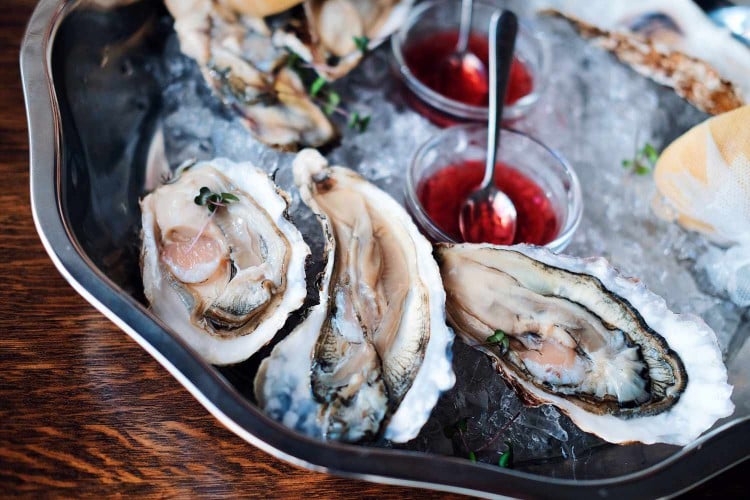- While orange juice may be a common drink if you have the common cold, it’s the vitamin C the drink contains that actually makes a difference.
- Other foods high in vitamin C include acerola cherries, chili peppers, guava, bell peppers, kiwi fruit, and lemon.
- Experts recommend eating a diet high in vitamin C before you get sick, to hopefully prevent illness this cold and flu season.
Does orange juice actually help if you have a cold?
Many people grew up with their moms handing them a glass of orange juice when they didn’t feel well. What might have been your family tradition probably ties back to assumptions about vitamin C.
“The theory leads us to believe if we drink and consume a lot of vitamin C, the duration of our cold will shorten,” said Amy Shapiro, MS, RD, a registered dietitian and the founder of Real Nutrition NYC.
Shapiro explained that, yes, vitamin C is a powerful antioxidant for the immune system. She noted that orange juice also contains potassium and vitamin A, which can also be helpful for boosting immunity.
“We experience inflammatory responses in our body when we have a common cold because the immune system is typically attacked by a virus,” Silvia Robalino, MD, a board-certified internal medicine doctor at HCA Florida Mercy Hospital, told Health. “Vitamin C has a role in sustaining the integrity of the immune system and supporting the function of many immune cells.”
While the nutrients found in orange juice theoretically sound like guzzling OJ would be helpful any time you feel a cold coming on, Shapiro points out that there is very little research that has specifically looked at the benefits of orange juice for a cold.
According to Shapiro, “Research shows that taking a [vitamin C] supplement regularly can help to ward off cold symptoms, but taking it after you have a cold already does not shorten the duration.”
Here’s how to get more immune-boosting benefits of vitamin C, as well as other vitamins that can contribute to immunity and help fend off the common cold.
Getty Images / Hirurg
Sources of Vitamin C to Boost Your Immune System
While citrus fruits, and orange juice in particular, have earned the reputation of being the best source of vitamin C, Shapiro notes there are actually richer food sources of vitamin C.
Shapiro and Robalino suggest the following for a boost of vitamin C:
- Kakadu plums
- Acerola cherries
- Chili peppers
- Guava
- Bell peppers
- Kiwi fruit
- Lemon
- Grapefruit
- Strawberries
- Tomatoes
Oranges are, still, a source of vitamin C as well. However, Shapiro recommends eating whole oranges instead of drinking orange juice.
Not only do whole oranges provide nutritious fiber, but they don’t have the same added sugars that many juices do, which can be a negative thing for a body that is fighting an illness, Robalino explained.
Signs and Symptoms of Vitamin C Deficiency
Should You Take Vitamin C Supplements For a Cold?
Shapiro says that taking vitamin C supplements can ensure you are getting a specific dose of vitamin C more regularly than just counting on your diet to meet your vitamin C needs.
“I would recommend including [a vitamin C supplement] during cold and flu season if you are afraid you may get sick,” she said. “This will ensure you are getting enough to support your immune system regardless of what food choices are available that day, week, or month.”
Robalino agrees that vitamin C supplements can be helpful for immune support, especially when it’s not possible to meet the daily recommended intake through diet.
However, both Robalino and Shapiro stress that supplements should not be the first choice—instead, prioritize meeting vitamin C needs through a balanced, nutritious diet.
“It’s healthier and recommended to get vitamin C from your diet,” said Robalino.
Additional Immune-Boosting Habits
While vitamin C is a great way to boost your immune system, there are other vitamins and minerals to consider as well.
“Zinc can help to shorten the duration of a cold by a day or so if taken within the first 24 hours of symptoms and may prevent upper respiratory infections that come after the common cold,” said Shapiro. “Elderberry is another supplement that is high in vitamin C and can help boost immunity and reduce the duration of cold/flu.”
Shapiro also emphasized the importance of staying well hydrated—not only when you have a cold, but also for everyday health.
“Being adequately hydrated is important to help maintain health and prevent illness,” advises Shapiro. “When your mucus membranes become dry and cracked, germs can enter and cause illness.”
While all of these tips are great immunity boosters, they’re more effective if done before you catch a cold—not just after you’re already sick in bed with the sniffles.
Can Emergen-C Actually Prevent a Cold?







